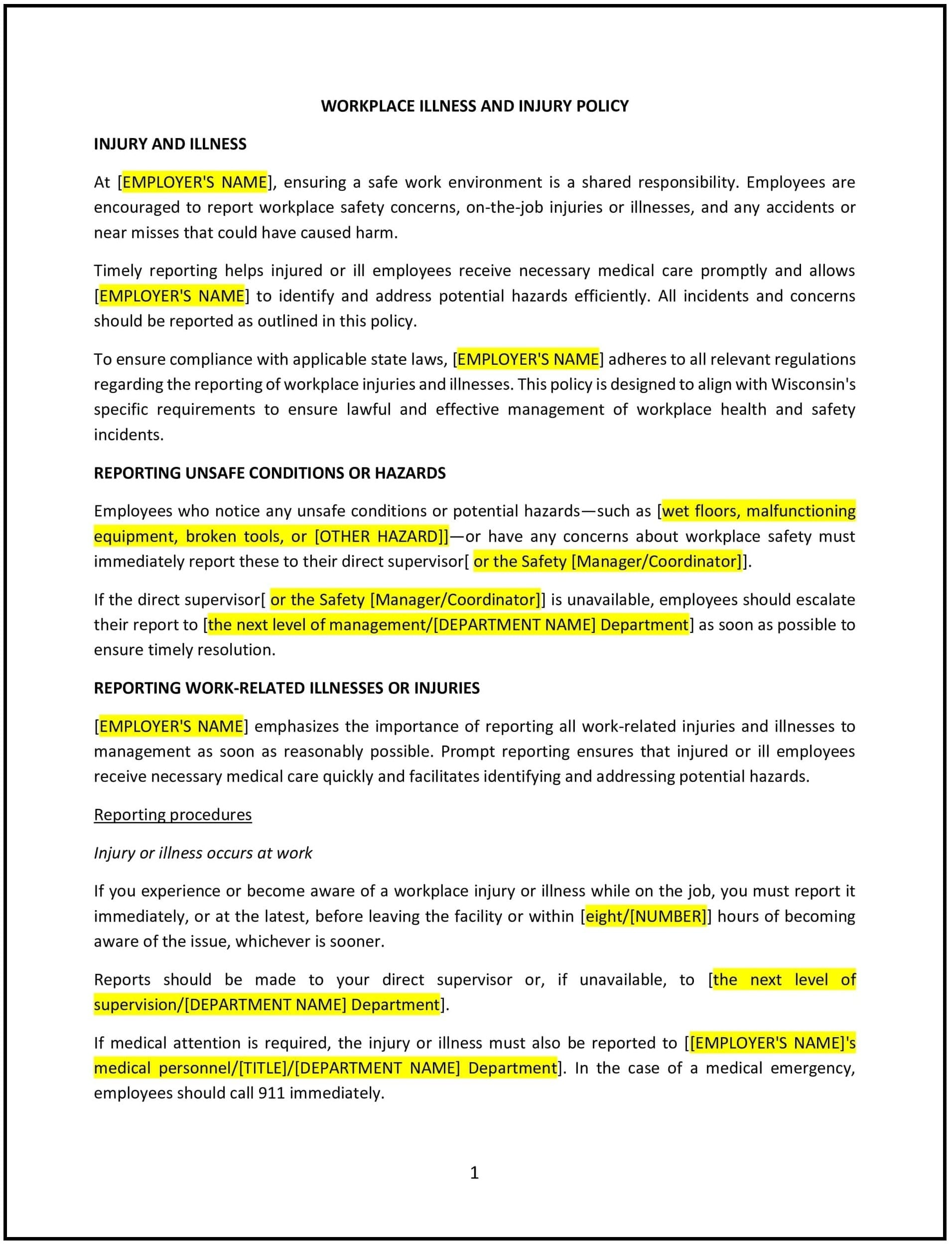Workplace illness and injury policy (Wisconsin): Free template
Got contracts to review? While you're here for policies, let Cobrief make contract review effortless—start your free review now.

Customize this template for free
Workplace illness and injury policy (Wisconsin)
In Wisconsin, a workplace illness and injury policy outlines procedures for preventing, managing, and reporting workplace-related illnesses and injuries. This policy ensures employee safety, complies with state and federal regulations, and provides a framework for addressing workplace health and safety concerns effectively.
The policy includes preventive measures, reporting protocols, and procedures for investigating and addressing workplace incidents.
How to use this workplace illness and injury policy (Wisconsin)
- Define covered incidents: Clearly specify what constitutes a workplace illness or injury, including physical injuries, occupational illnesses, and exposure to hazardous substances.
- Outline reporting procedures: Provide employees with detailed steps for reporting workplace illnesses and injuries, including the required timeframe and contact person (e.g., HR or a safety officer).
- Address response protocols: Explain the company’s procedures for responding to incidents, such as providing first aid, contacting emergency services, and documenting the incident.
- Establish prevention measures: Include strategies for reducing workplace risks, such as safety training, regular inspections, and equipment maintenance.
- Support compliance: Ensure the policy aligns with Wisconsin labor laws and OSHA regulations to meet legal safety standards.
Benefits of using a workplace illness and injury policy (Wisconsin)
- Enhances employee safety: Provides clear guidelines for preventing and managing workplace-related health concerns.
- Supports compliance: Helps businesses adhere to Wisconsin state laws and OSHA requirements, minimizing legal risks.
- Promotes a proactive safety culture: Encourages employees to report hazards and participate in creating a safer work environment.
- Reduces operational disruptions: Ensures incidents are handled efficiently, minimizing their impact on productivity.
- Builds employee trust: Demonstrates the company’s commitment to employee health and safety.
Tips for using a workplace illness and injury policy (Wisconsin)
- Communicate the policy: Ensure employees are informed of the policy during onboarding and that it is readily accessible for reference.
- Train employees: Offer regular training on workplace safety, hazard identification, and illness/injury reporting procedures.
- Maintain documentation: Keep detailed records of reported illnesses and injuries, including investigation outcomes and corrective actions taken.
- Review safety practices: Conduct periodic safety audits and risk assessments to identify and address potential hazards.
- Update regularly: Revise the policy as needed to reflect changes in Wisconsin laws, OSHA standards, or workplace practices.